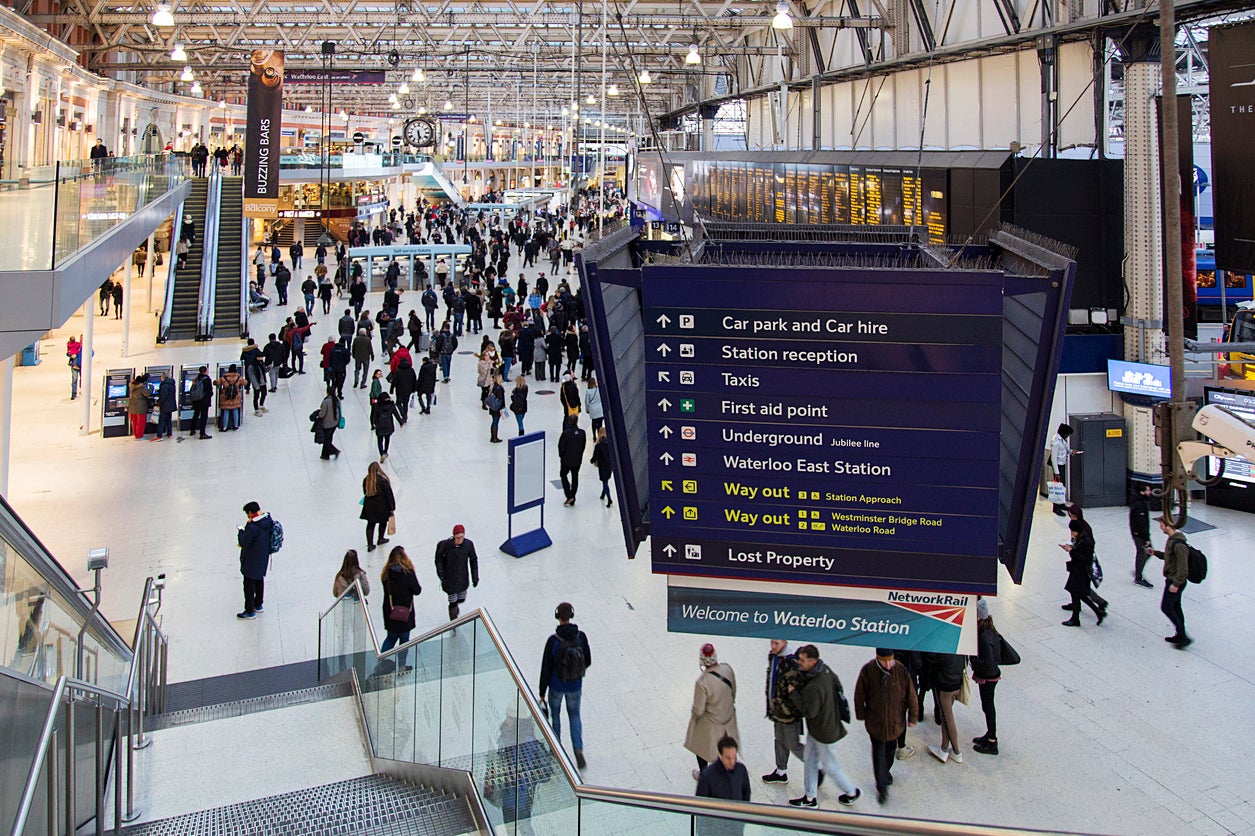£3 for walking sticks, £25 for laptops and 10% of any cash: How train firms are profiting off passengers' lost property
Getting your belongings back could cost you

Losing your valuables on public transport is a traumatic enough experience as it is – but train companies’ charges for retrieving lost belongings adds a rather expensive insult to injury.
The issue of lost property fees came to the fore recently after Arriva Trains Wales passenger Adam Howells complained on Twitter that the company had charged him £2 plus 10 per cent of the cash inside to retrieve his lost wallet.
The company responded to Mr Howells by providing a full list of its lost property charges, which included a £3 charge for walking sticks and £25 for laptops.
The incident prompted The Independent to look into the number of train companies that charge for storing and restoring lost property to its rightful owner, and the practice is much more widespread than you might think.
Only four companies have outright confirmed the service is free – East Midlands, Northern, Merseyrail and C2C – while London North Eastern Railway fail to make clear whether passengers will be charged to retrieve lost items.
Chiltern Railways, which is owned by Arriva, charges £20 for laptops, tablets and other high-value electronic items; £10 for mobiles, personal stereos and other similar electronic items; and £3 for all other items.
Among the worst offenders are West Midlands Railway, Greater Anglia and London Northwestern Railways. All three issue the same guidelines, which require customers to pay two charges – one for the storage of their lost property and one to retrieve it. Items are split into “bands” with each assigned a different charge.
Laptops and video cameras cost £20 to collect; mobiles £10; jewellery, watches, cameras, bikes, clothes, suitcases, rucksacks, briefcases, filofaxes, musical instruments, skis and surfboards £3; and umbrellas, gloves/scarves/hats, spectacles, keys, reading books, prams/pushchairs and all other items £2.
On top of that, there’s a storage fee of £1 per 24 hour period for laptops, video cameras, mobiles, skis, surfboards, prams/pushchairs and bicycles, and 50p per 24 hour period for jewellery, watches, cameras, clothes, suitcases, rucksacks, briefcases, filofaxes, musical instruments, umbrellas, gloves/scarves/hats, spectacles, keys, reading books and all other items.
Finally, for refunding cash found to the owner, the three companies add an administration charge of £2 minimum or 10 per cent of the amount found, up to £10.
Southeastern, meanwhile, charges a collection fee of £3 for all items, apart from larger electronic items, such as laptops, where the charge is £20.
If you lose your property on a Virgin Trains service that terminates at London Euston, Birmingham New Street, Manchester Piccadilly, Edinburgh Waverley or Glasgow Central, Network Rail will keep it at their luggage office and will charge a fee for keeping it safe. However, if you lose it on a train that terminates at any of the other stations along the West Coast Mainline, there’s no charge.
South Western Railways says it follows the National Rail Conditions of Carriage for reunification charges; for example, there’s a £3 reunification fee on collecting a left suitcase.
A spokesperson said: “We do not apply a 10 per cent surcharge for reunification, nor is there a fee for storage of items or for certain items such as medications, children’s possessions or educational work.”
Scotrail imposes a storage charge for items not recovered within 24 hours, set at up to £2 per day, with a maximum charge of £30. There’s no storage cost for cash but an administration fee of 10 per cent (minimum of £2, maximum of £10) is charged.
Most other train companies state that they charge a “small fee” for passengers to pick up lost items, but fail to stipulate how much this is on their websites.
These include Southern, Gatwick Express, Thameslink, Great Northern and Eurostar – The Independent has reached out to these companies for further clarification.
Jacqueline Starr, managing director for customer experience for the Rail Delivery Group, which represents the railways, said: “Train operators will do everything they reasonably can to take care of property that has been left on trains or at stations and they are required to maintain a lost property process as a condition of their franchise.
“The costs of storing valuable items and returning them to their owners can vary and train companies will clearly set out charges through their lost property offices. The limit of these charges is set out in the National Rail Conditions of Travel, which is publicly available and approved by the Department for Transport.
“We recognise that losing property is stressful for our customers and we want to provide the best service possible.”
According to the National Rail Conditions of Travel, a train company or rail service provider may make a charge for storing property, not exceeding £2 per item per day, and for retrieval of property by the owner, not exceeding £30 per item. The amount charged depends on the type of property and the period for which it has been kept.
“The current lost property systems in place are, in many cases, not fit for purpose for reuniting lost property with rightful owners,” David Sidebottom, passenger director at independent transport watchdog Transport Focus, told The Independent. “So we’re calling for a centralised national database, as well as sensible rules for dealing with lost property across the country’s rail network. This includes another look at fees.”
Subscribe to Independent Premium to bookmark this article
Want to bookmark your favourite articles and stories to read or reference later? Start your Independent Premium subscription today.

Join our commenting forum
Join thought-provoking conversations, follow other Independent readers and see their replies